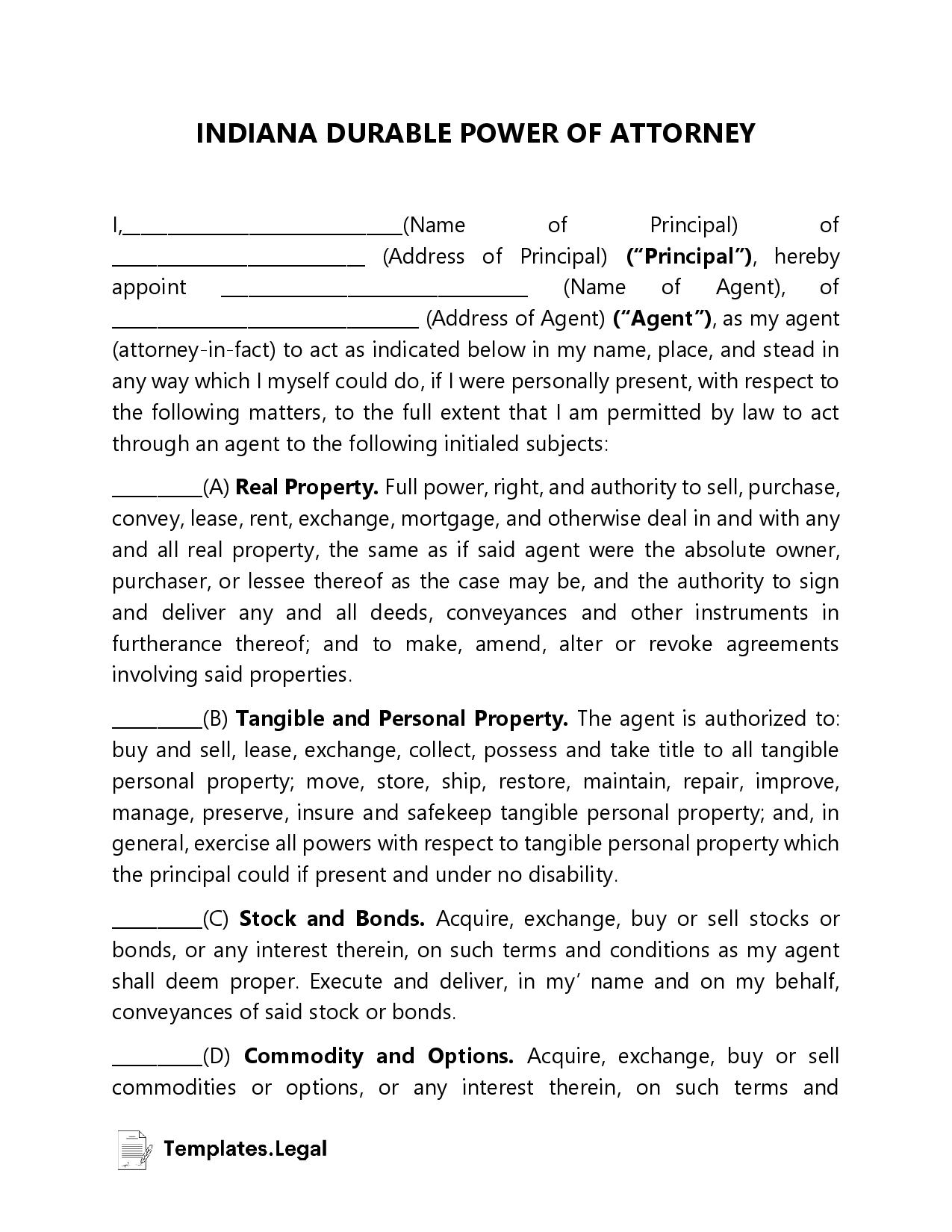
Under state law, to be Indiana power of attorney, you must adhere to the following guidelines:
Contents hideIndiana powers of attorney are put in effect either from the moment they’re signed or from a time of the principal’s choosing and remain in effect until revoked or its time expires.
A durable power of attorney in Indiana gives someone the authority to make decisions and act on the principal’s behalf in the event they become incapacitated. Generally, this type of PoA gives the attorney-in-fact the authority to make financial judgments on the principal’s behalf.

The principal can revoke this power of attorney at any time they choose.
A general power of attorney in Indiana grants an attorney-in-fact the right to make any financial decision on behalf of the principal within Indiana. However, unlike durable power of attorney, a general PoA becomes void if the principal becomes incapacitated.
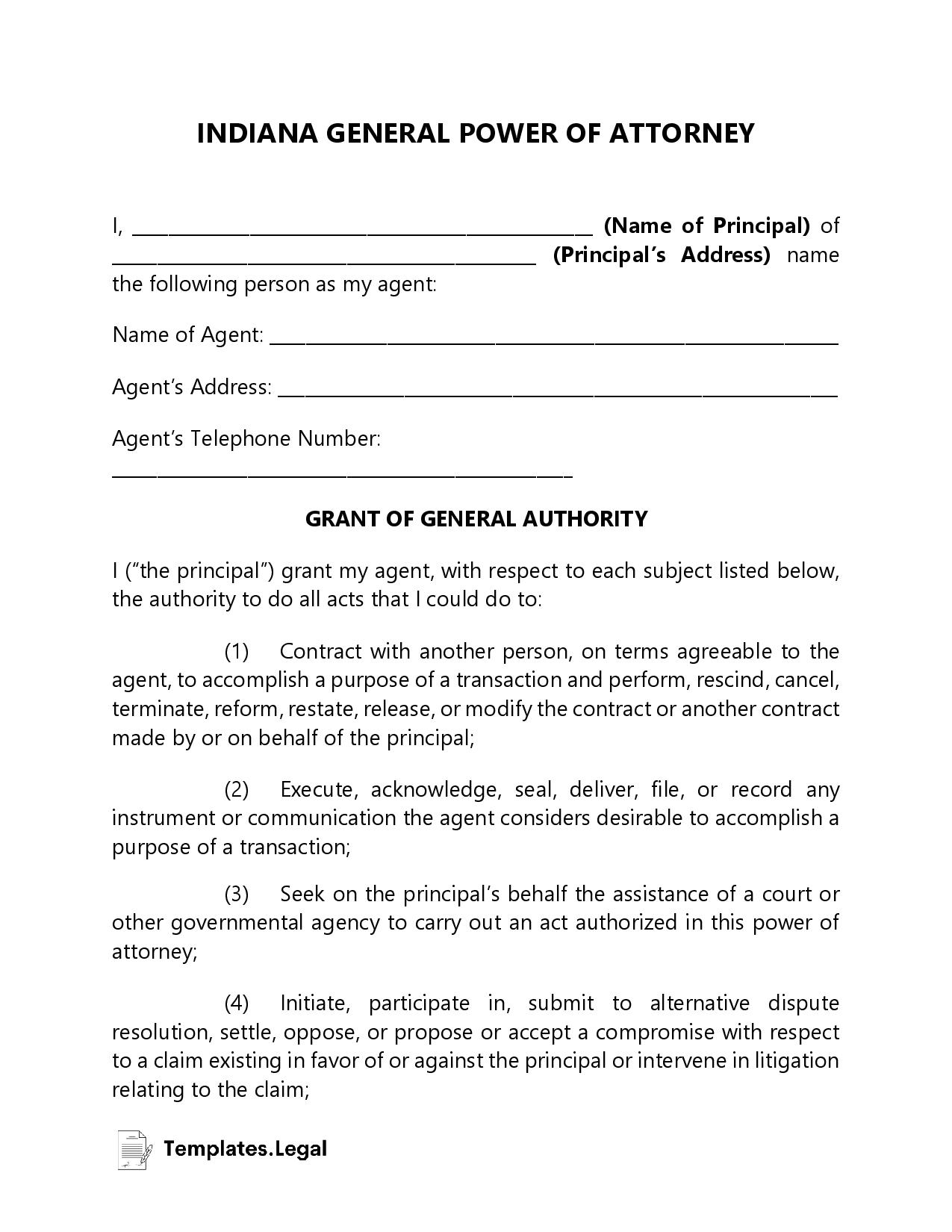
If you’re someone’s attorney-in-fact, then the Indiana power of attorney law requires you to hold both general and durable powers of attorney if you are to make financial decisions on the principal’s behalf regardless of their incapacitation.
Limited power of attorney in Indiana is precisely that: Limited. The principal designates an attorney-in-fact to act on their behalf in specific circumstances only. They may decide bills, buy or sell a house or other property, and other particular situations.
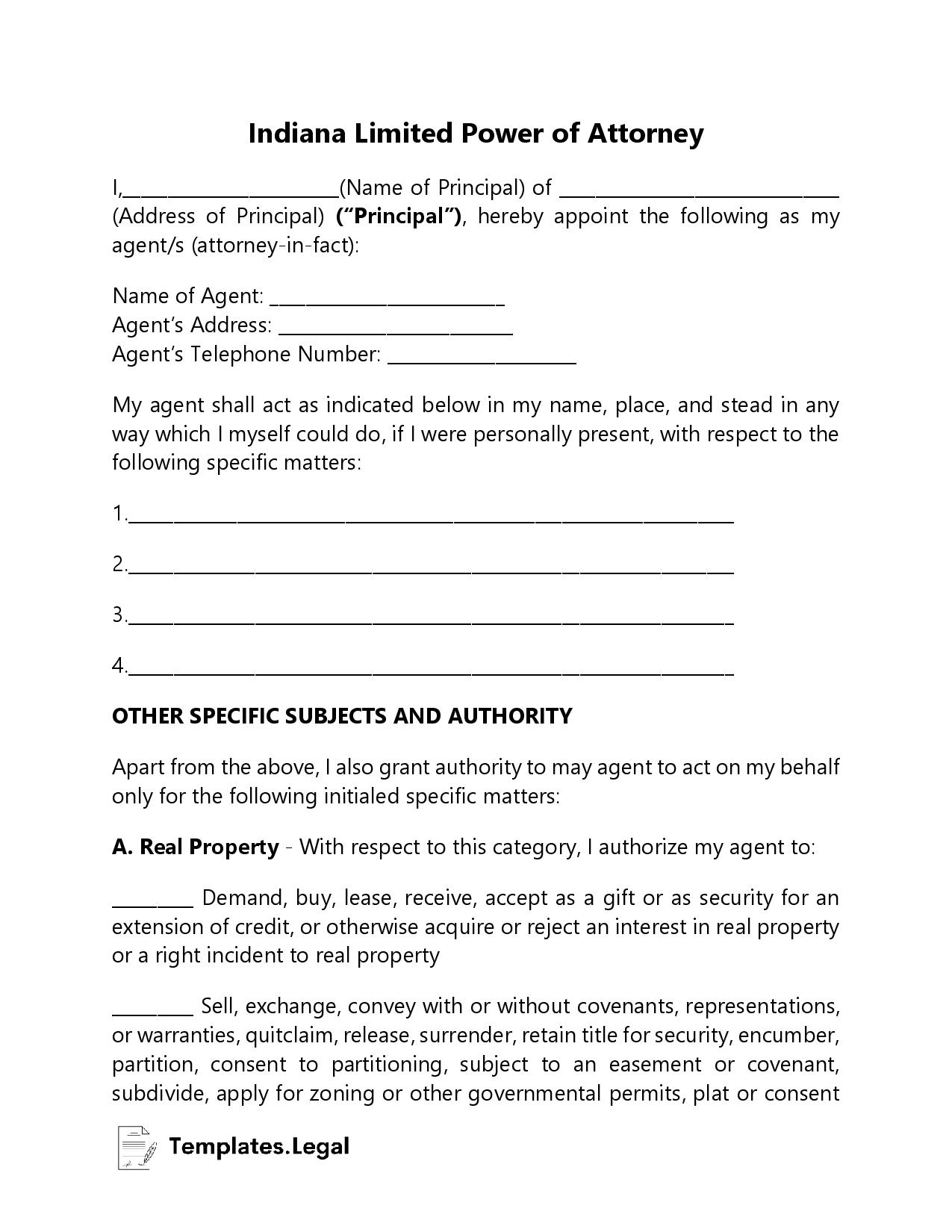
All proceeds from anything sold must go to the principal, and the principal and notary public must sign it.
Officially known as “Form 56184,” medical power of attorney in Indiana allows an attorney-in-fact to make medical decisions on behalf of the principal should they be incapable of making their own medical decisions.
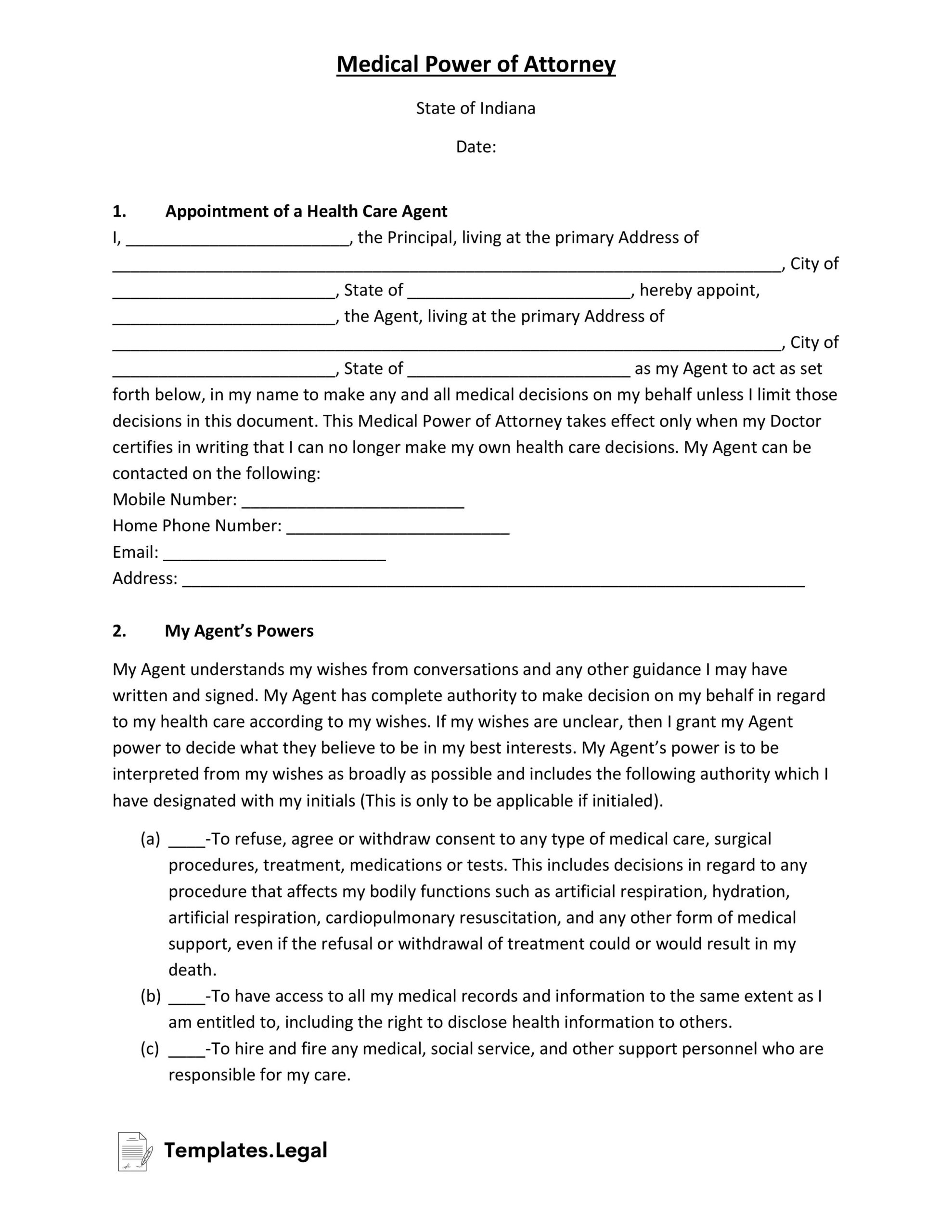
Principals should take care to designate someone who lives nearby so that person can speak to healthcare providers personally. When combined with a living will, it becomes the Indiana Advance Directive.
Under minor (child) power of attorney in Indiana, parents or another entity can choose someone to act in a parental capacity, making decisions and performing actions that concern a child under 18. The attorney-in-fact ensures that the child receives proper care.
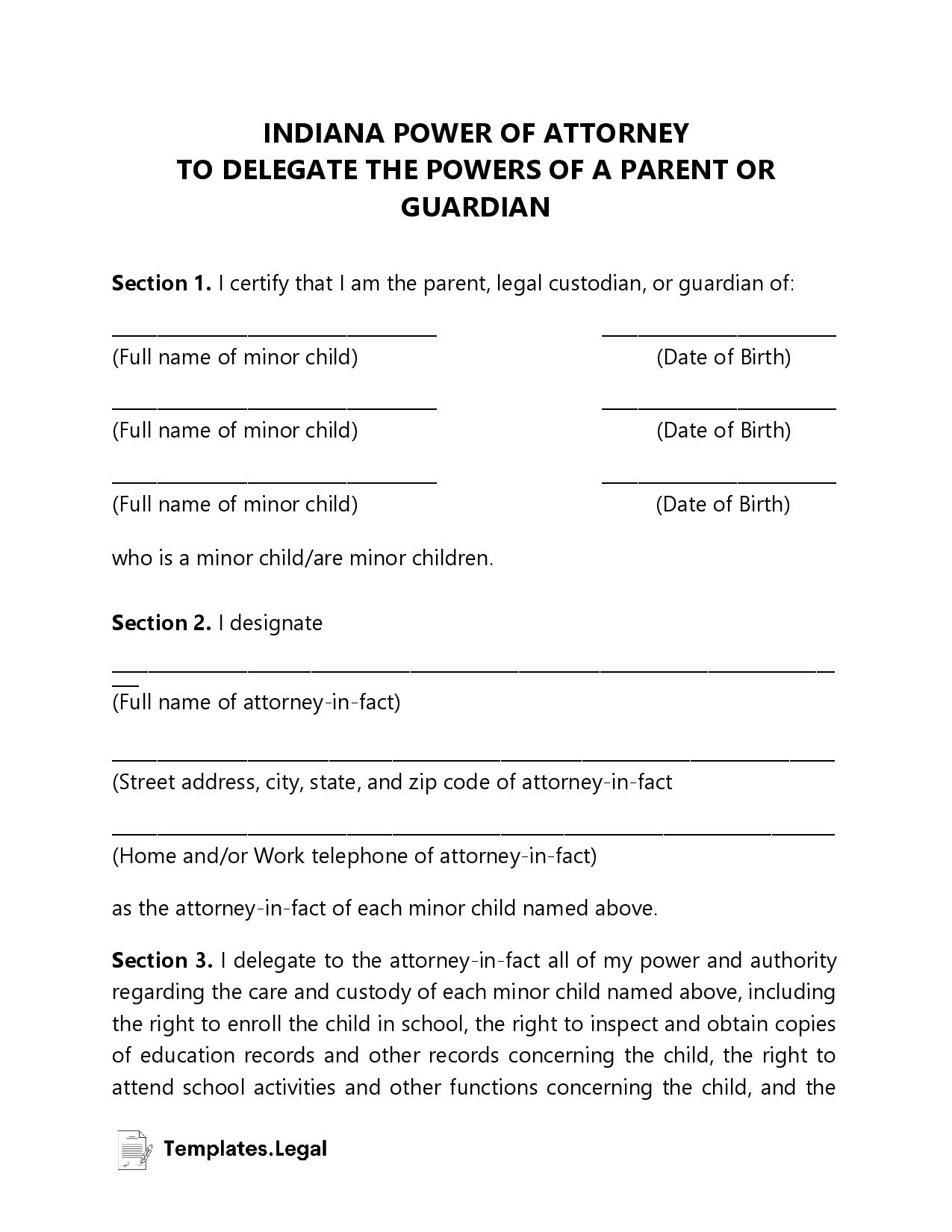
These powers of attorney are good for 12 months or as long as the child is in the institution’s care.
The principal chooses you as their attorney-in-fact and draws it up in writing or can use one of these free Indiana power of attorney forms to do it. The principal and a notary public must sign it.
Depending on what type of PoA the principal is granting, they may need a witness signature, too.
How do you revoke power of attorney in Indiana?To revoke the document, you must notify your attorney-in-fact in writing, specify the powers being revoked, and sign it.
How do you sign and notarize a power of attorney document in Indiana?Everyone required to sign a PoA document must take it to a notary public before signing it. Once there, you sign it in their presence, and then the notary signs it and puts their seal on it.